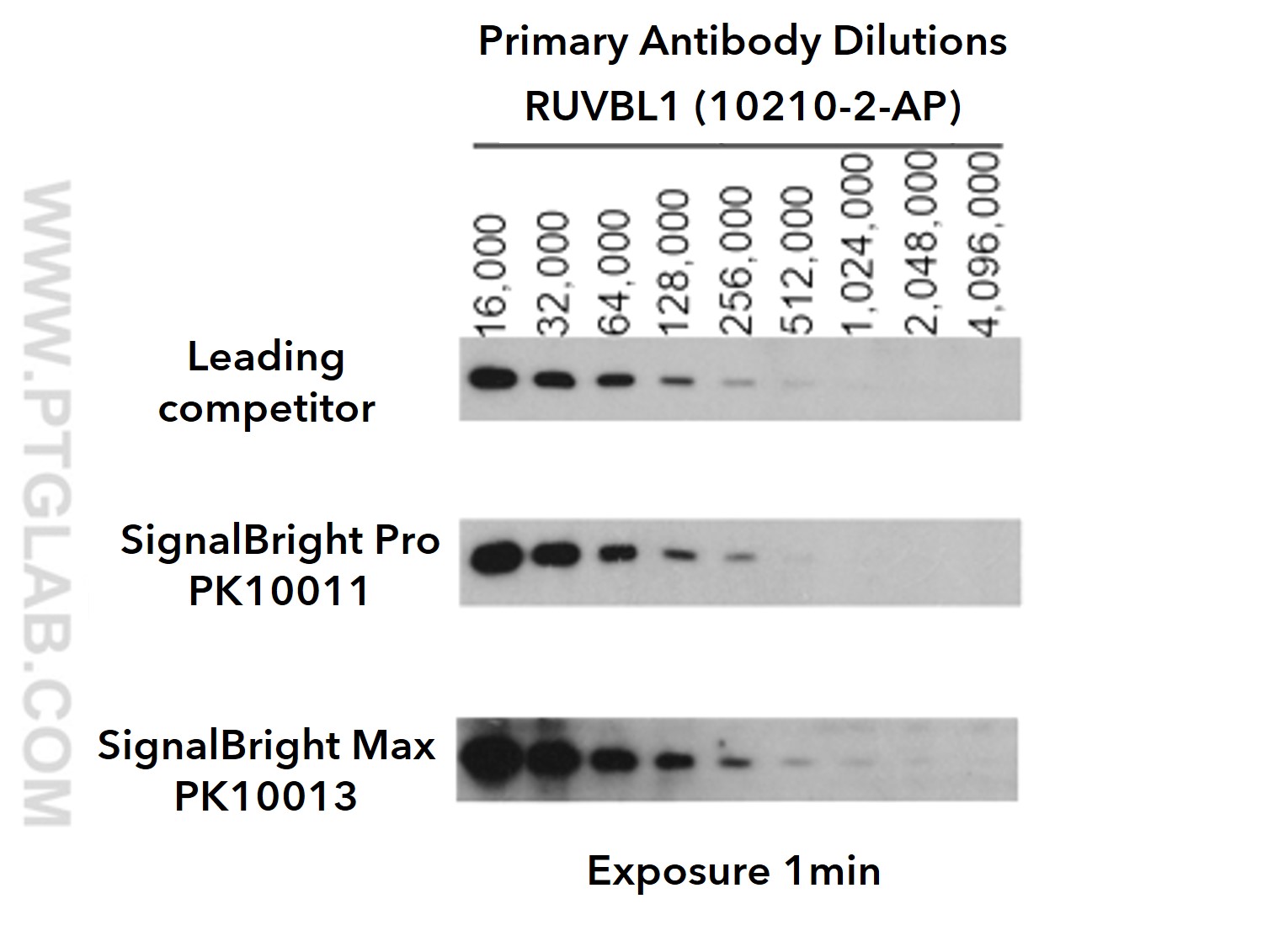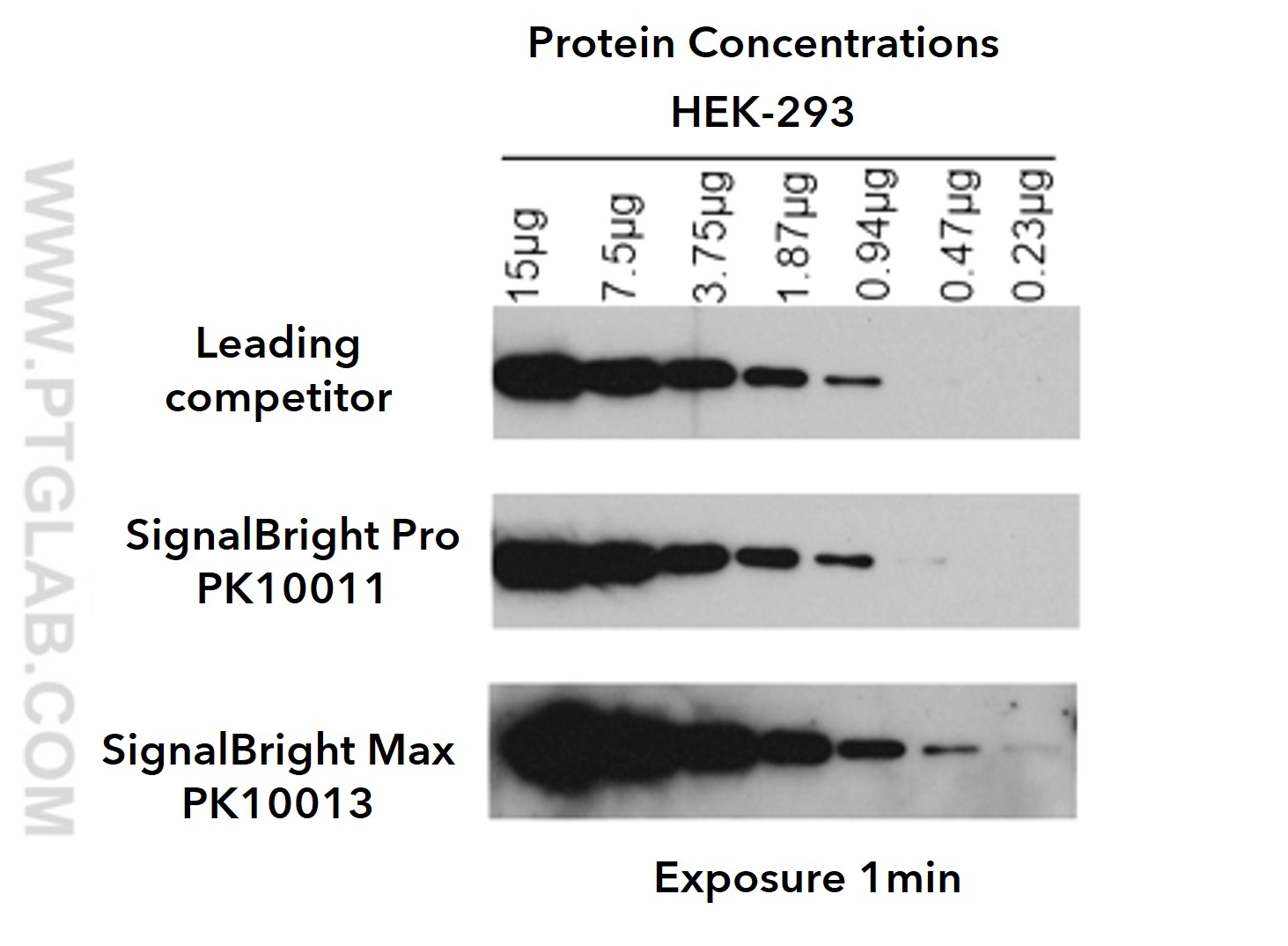Product Information
SignalBright Max is a luminol-based, ultra-sensitive chemiluminescent substrate for HRP (horseradish peroxidase) which provides a much higher sensitivity over traditional ECL reagents. SignalBright Max provides increased sensitivity over SignalBright Pro, with mid to low femtogram detection levels in Western Blot and ELISA analysis.
Key Characteristics:
· Ultra-Sensitivity: Mid to low femtogram
· Signal duration: > 12 hours
· Compatibility: suitable for PVDF and nitrocellulose membranes
· Comparable sensitivity to SuperSignal™ West Femto
Instructions for Use
SignalBright Max Chemiluminescent Detection Kit is prepared by combining a 1:1 ratio of Chemiluminescent Substrate Solution and Stable Peroxide Solution to create a working solution. Allow the working solution to come to room temperature before applying to the membrane, make sure this is done in darkness. Apply a minimum of 0.1ml of the working solution per membrane cm2. Leave 5 minutes for signal to develop prior to imaging. Signal can be imaged using an X-ray film or a Chemiluminescent Imager.
· Recommended primary antibody concentration: 10-200 ng/ml
· Recommended HRP-conjugated secondary antibody concentration: 1-10 ng/ml
Product Information
| Cat. | Size | Content |
| PK10013 | 20mL | 10mL Chemiluminescent Substrate Solution |
| 10mL Stable Peroxide Solution | ||
| 100mL | 50mL Chemiluminescent Substrate Solution | |
| 50mL Stable Peroxide Solution |
Storage
Store at 4ºC. Expires 1 year after purchase.
Cited in Article as
PK10013, SignalBright Max Chemiluminescent Substrate, Proteintech, IL, USA
Publications
| Application | Title |
|---|---|
Proc Natl Acad Sci U S A The herpesvirus UL49.5 protein hijacks a cellular C-degron pathway to drive TAP transporter degradation | |
bioRxiv The herpesvirus UL49.5 protein hijacks a cellular C-degron pathway to drive TAP transporter degradation | |
Chem Biol Interact Berberine hydrochloride ameliorates PM2.5-induced pulmonary fibrosis in mice through inhibiting oxidative stress and inflammatory | |
J Food Sci Different effects of low- and high-density lipoproteins in egg yolk on lipid metabolism of mouse: Role of phospholipids-to-cholesterol intake ratio | |
ACS Chem Biol The Role of MegaMolecule Antibody Structure in Internalization and Signaling | |
J Inflamm Res IRF2 Affects LPS- and IFN-γ-Induced Pro-Inflammatory Responses, Cell Viability, Migration and Apoptosis of Macrophages by Regulating IRG1 |




